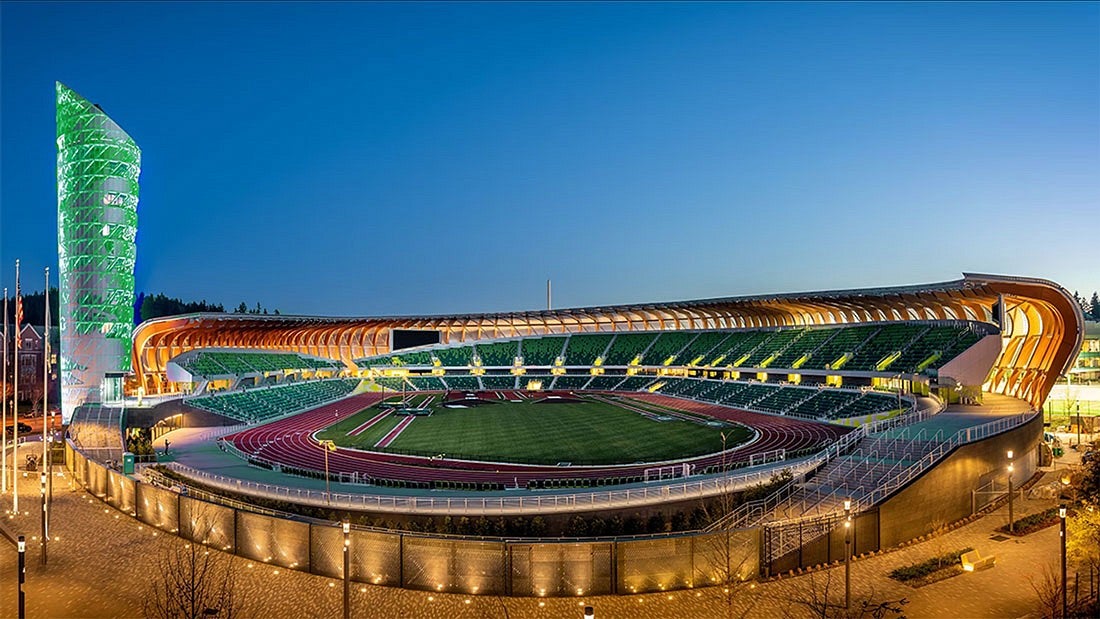Changing the World Through Sport
Global network cofounded by UO hosts inaugural international summit
World leaders in athletics research converged on campus September 12–13 for the inaugural summit of a new global network cofounded by the UO. During the international event, dedicated to changing the world through sport, experts from six continents and 21 countries collaborated around the theme of inclusivity.
Organized by the Global Sport University Network, the event was both a milestone and a proof point, says Carlyn Schreck, assistant vice president for presidential initiatives.
“This summit reflects the UO’s leadership role in sports science,” Schreck says. “The summit topics dovetail perfectly with pockets of research excellence throughout the university.”
GSUN aims to address problems too big for one institution to solve on its own, Schreck adds. The network is quickly becoming a trusted authority for research, knowledge and policy advice in sport.
Like many successful ventures, it all started with a simple conversation.
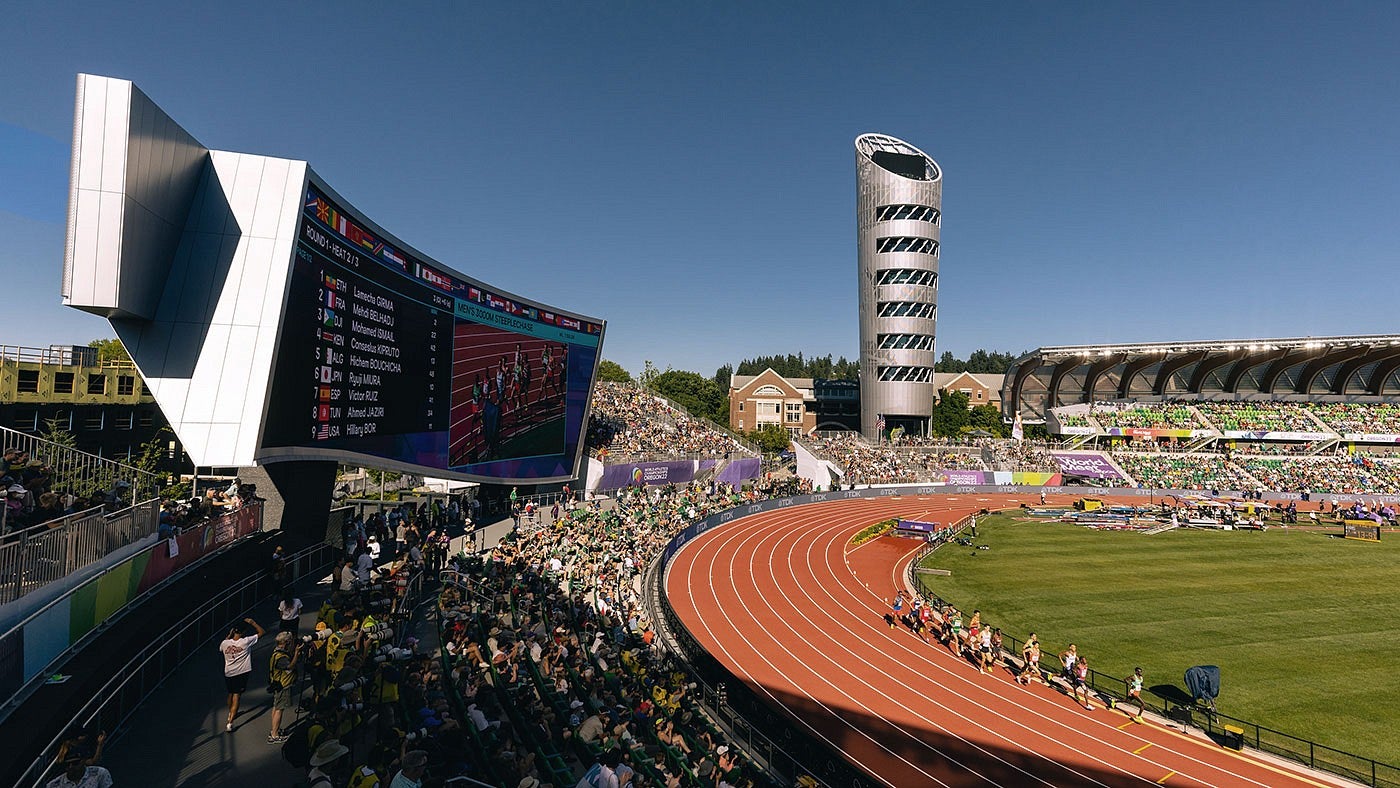
a delegation from Loughborough University visited campus and discussed GSUN
A Transatlantic Alliance
During the early planning stages for the 2022 World Athletics Championships — the first in the US or on any university campus — Schreck coordinated UO efforts with World Athletics President Lord Sebastian Coe.
A two-time Olympic champion middle distance runner, Coe knew all about the UO, home of legendary athletics teams and Hayward Field. This is where Nike cofounder Bill Bowerman developed revolutionary running shoes using a waffle iron. And the UO established the first school of physical education in the US.
But neither Schreck nor Coe imagined they’d have time for anything more than organizing the world’s top outdoor track and field competition.
As they planned July’s global extravaganza, they also talked about interdisciplinary research and scholarship at the UO. Coe, chancellor of Loughborough University, shared more about the British university’s excellence in sport research.
The seed of GSUN was first planted in 2021 during a transatlantic conversation involving Schreck and Dennis Galvan, dean and vice provost for the Division of Global Engagement. They joined Michael Caine, then associate pro vice-chancellor of Loughborough University, on a virtual call about a new UO sport and wellness initiative.
Schreck and Galvan proposed a simple partnership. Caine introduced the notion of a global network uniting the world’s top universities in sport science.
“Around the world, sport is a unifier,” Galvan says. “It brings us together, despite ethnic, religious, and political differences.”
Loughborough boasts a global reputation for excellence in sports research, Galvan says. Across the Atlantic, UO faculty were breaking trail, uniting athletics with academics in new ways, and partnering with businesses in the epicenter of the US sports product industry.
After further discussion, both universities agreed to join forces.
But when our new British friends hopped the pond and headed to Oregon, the bar moved higher.
Sprinting off the Blocks
For several days in July 2022 preceding the World Athletics Championships, a Loughborough delegation visited campus. They toured Hayward Field, Autzen Stadium, the Hatfield Dowlin Complex, the Bowerman Sports Science Center, and the Phil and Penny Knight Campus for Accelerating Scientific Impact.
And they met top UO researchers from diverse disciplines. Oregon and the UK’s leading university for athletics research were realizing their potential to form a winning team.
Bob Guldberg, UO Vice President and Robert and Leona DeArmond Executive Director of the Knight Campus, had existing scientific connections at Loughborough and offered to support faculty and student exchanges to facilitate new collaborations.
A global scientific matchmaker, he also invited Loughborough to join the Wu Tsai Human Performance Alliance, an international effort to promote wellness and peak performance through scientific discovery and innovation.
UO Facilities Toured by Loughborough Delegation
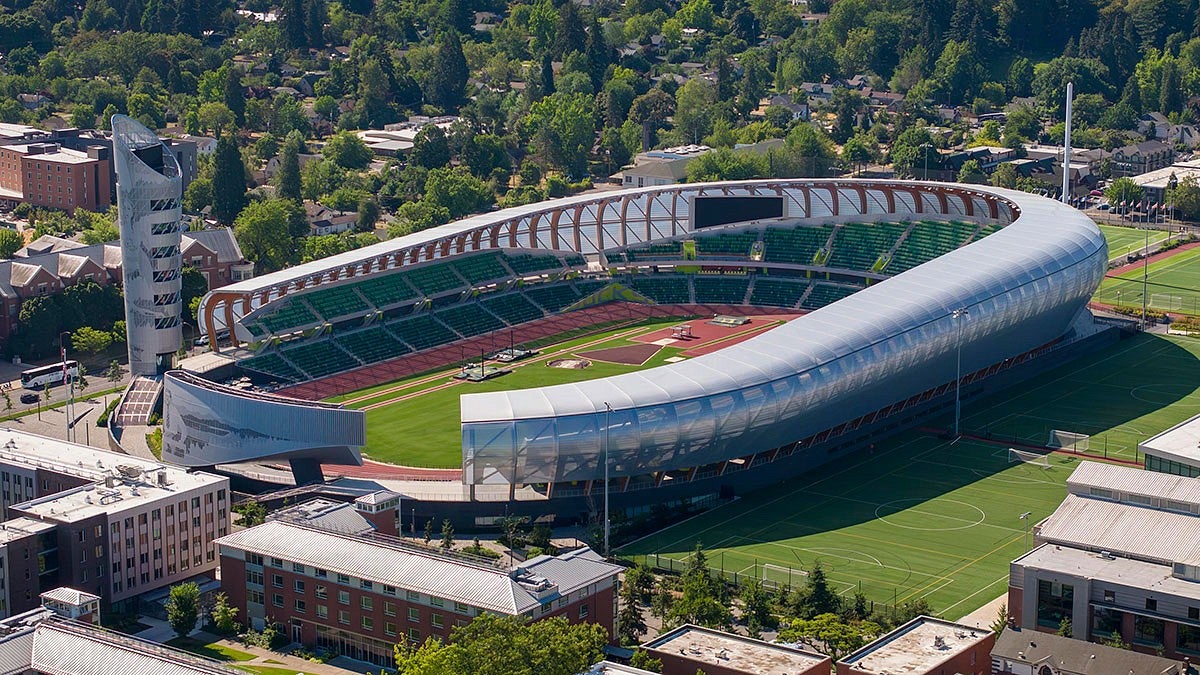
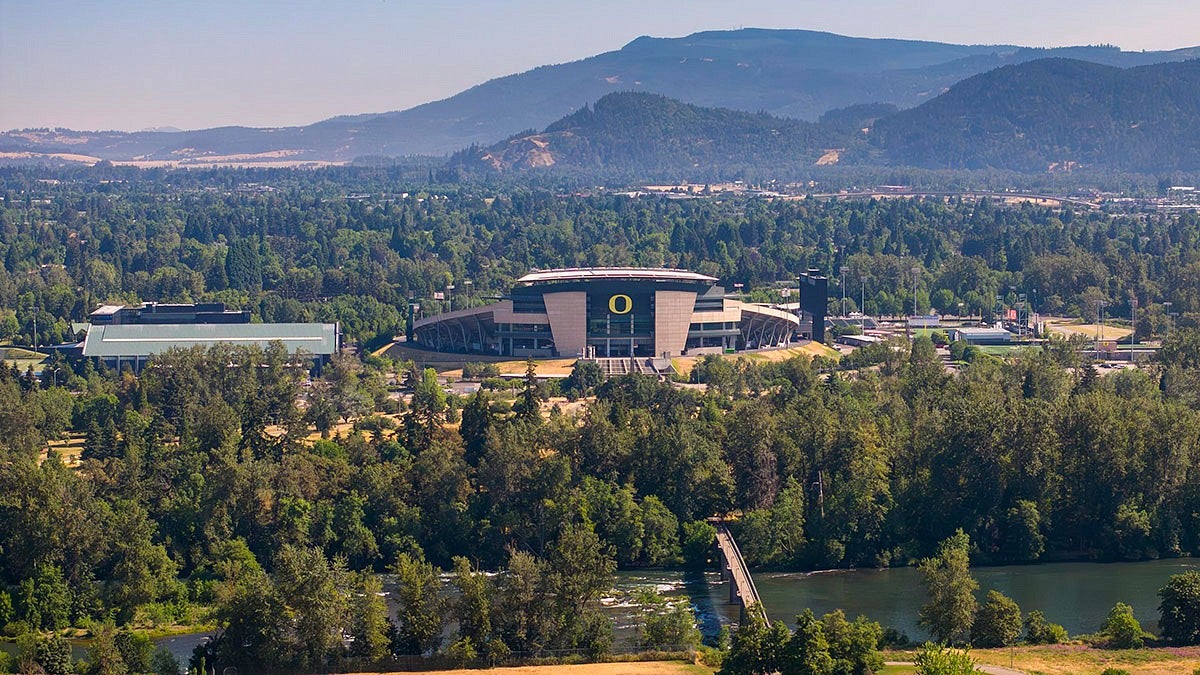
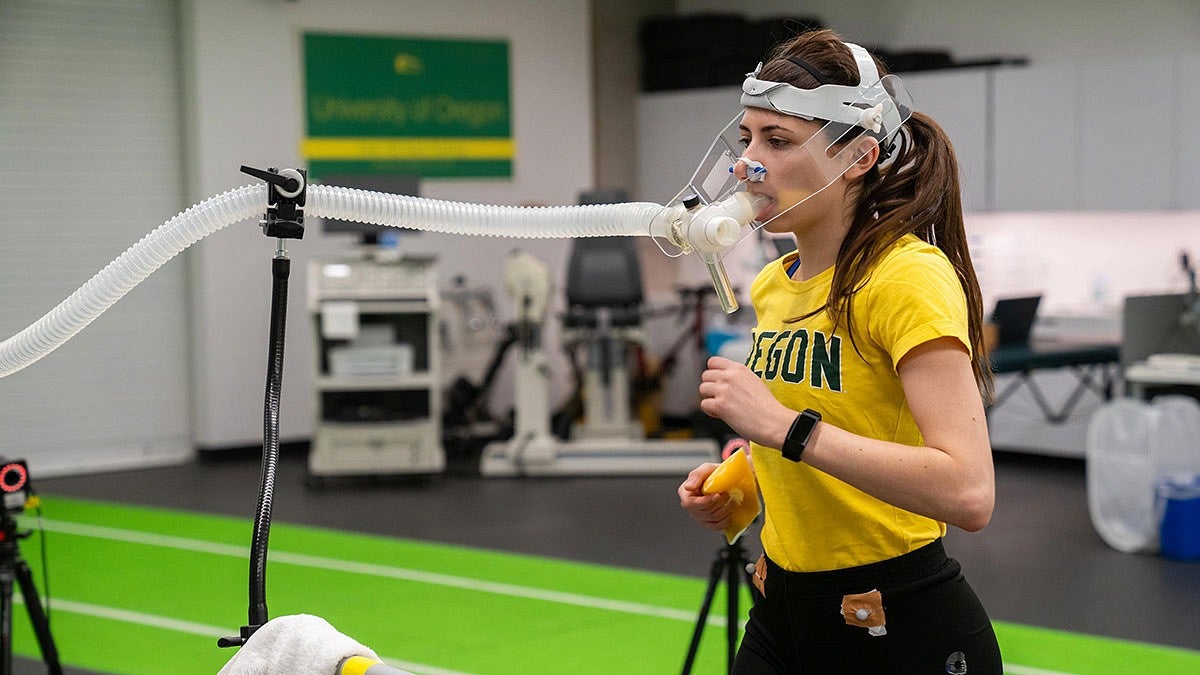
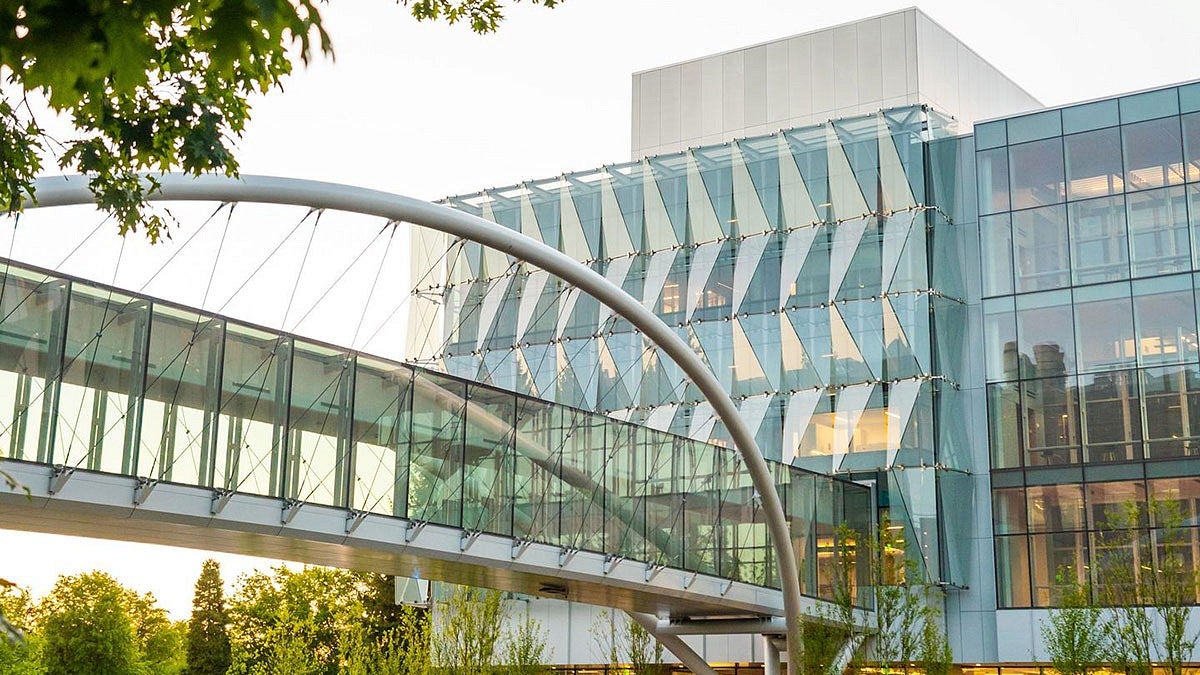
The UO is a founding partner of the Wu Tsai Alliance, which launched in 2021 with a 10-year, $220 million pledge from the Joe and Clara Tsai Foundation. UO donors gave to an endowment that supports the university’s contribution to the alliance and creates an ongoing legacy for human performance research excellence at the UO.
But the GSUN vision extended beyond just two universities. It was the last day of the Loughborough visit, during lunch on the Knight Campus outdoor terrace, when all the key players entered the zone.
Perhaps it was the breathtaking tours and engaging discussions — or maybe the panoramic views toward the Willamette River and Autzen Stadium — that sparked their blue-sky thinking.
What would it look like if they could work in concert to solve big, global problems related to sport? Then the hard work began.
Teams from Oregon and Loughborough built a new international research network, starting with a leadership council of top institutions from around the world. Leaders from nine countries and six continents developed the network’s guiding principles, purpose and structure. In September 2023, they celebrated the launch of GSUN.
Today, says Guldberg, the network is firing on all cylinders.
“GSUN harnesses critical knowledge and expertise on sport to solve timely, complex human health challenges that could only be tackled collectively,” Guldberg says. “The inaugural summit at the University of Oregon connected researchers, educators, and institutions with industry, governing bodies, sport commissions, media, and other key stakeholders and sparked new collaborations that will strengthen our shared commitment to maximizing the positive impact of sport.”
It takes a flock of researchers, change makers and innovators
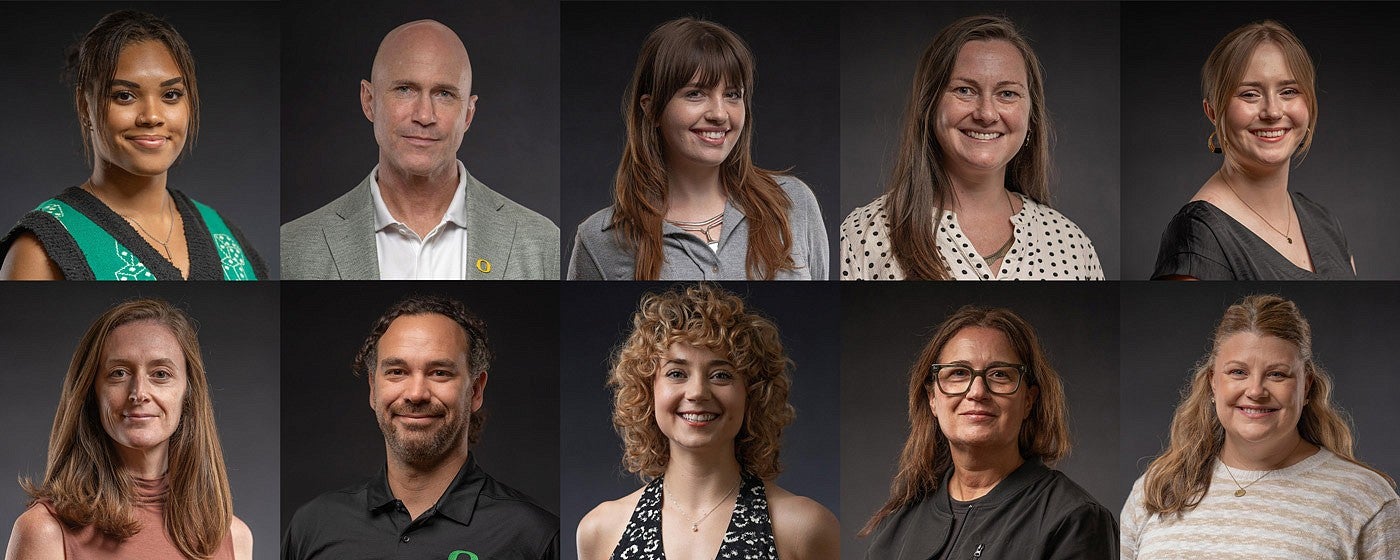
Some of the UO students, faculty members and leaders who made the GSUN Summit a success.
Reaching the Summit
Diverse disciplines joined
the conversations
- Engineering
- Humanities
- Human performance
- Human Physiology
- Law
- Sports business
- Sports science
- Technology
- Journalism
At the September summit, participants explored topics related to inclusivity in sport performance, including para athletes, aging, female athletes and mental health. Panel topics included using artificial intelligence to make sports more inclusive, the recent growth of para sports, and youth physical fitness.
An all-Indigenous panel featured the Haudenosaunee Nationals, a Native American lacrosse team competing under their own banner at the 2028 Olympics. Other highlights included a running tour of campus, a pre-dinner lap around Hayward Field, and a UNESCO panel on global sport policy.
“The summit was an incredible opportunity to showcase the many areas in which UO excels in human performance and sport,” said Guldberg, who served as the summit chair.
What happens after the summit may be even more exciting. Organizers anticipate the event will generate new partnerships and launch innovative research initiatives. The network will also expand as GSUN begins accepting institutional memberships.
In addition to UO and Loughborough, GSUN leadership council members include eight universities from six continents. Their mission is to change the world through sport by focusing on four themes: health and performance, inclusivity and societal impact, innovation, and sustainability.
Let the games begin.
GSUN Leadership Council Member Universities
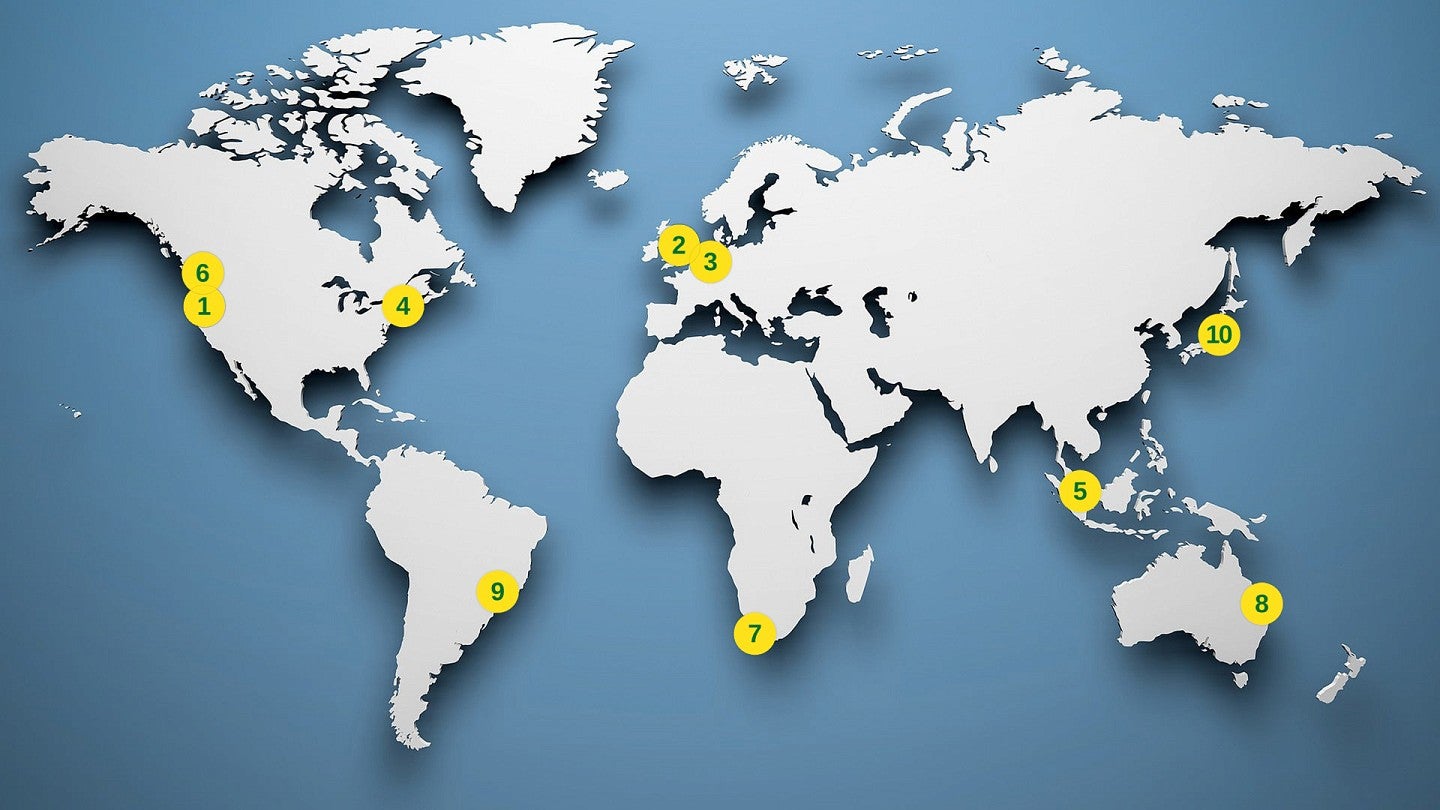
University of Oregon (United States)
Worldwide reputation in athletics that extends to research, innovation, and industry partnerships, founding member of the Wu Tsai Human Performance Alliance
Loughborough University (United Kingdom)
Tops in the UK for sports related research and academics, GSUN participation includes their School of Sport, Exercise and Health Sciences, and the Technology Institute for Sport Business
German Sport University Cologne (Germany)
One of the world’s top universities focused on sport and Europe’s largest such institution, boasting the world’s biggest library dedicated to sport and exercise
Massachusetts Institute of Technology (United States)
Consistently ranked among the best US universities, GSUN participation includes their Sloan School of Management, Sports Technology Education @ MIT, and MIT Sports Lab
Nanyang Technological University (Singapore)
Ranked in the top 15 by QS World University Rankings, GSUN participation includes engineering, fitness and aging, medicine, sport technology, and sport performance
University of British Columbia (Canada)
School of Kinesiology is number one in Canada and North America, and third globally (QS World University Rankings)
University of Cape Town (South Africa)
One of Africa’s top universities, GSUN participation includes the Sports Science Institute of South Africa and Health through Physical Activity, Lifestyle, and Sport
University of Queensland (Australia)
Ranked among the world’s top universities for sports-related subjects, GSUN participation includes School of Human Movement and Nutrition Sciences
University of São Paulo (Brazil)
A top Latin American university, GSUN participation includes their School of Physical Education and Sport, as well as business, marketing, communications, and education
Waseda University (Japan)
Known as the MIT of Japan, this longstanding UO partner ranks among the nation’s top universities, GSUN participation includes sports science, business, kinesiology, and psychology
